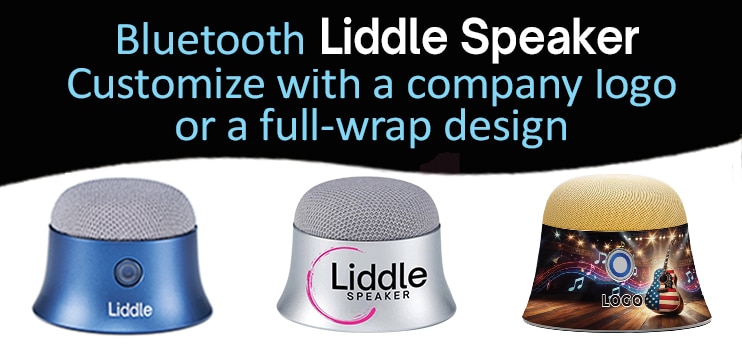Above photo: Dustin Burnett (in hat), a co-founder of Allmade and owner of print shop Nothing Too Fancy, visited Haiti, as have all the leaders of Allmade’s co-founding companies, to see firsthand the work the organization supports and to meet the people who benefit from it.
Vancouver, Washington-based supplier Allmade was founded by the leaders of nine screen-printing companies, who saw an opportunity to make a difference in the environment by using fewer resources and bettering the lives of people living and working in Haiti, one of the poorest countries in the Western Hemisphere. Together, Ryonet, Printed Threads, Mel Lay, Nothing Too Fancy, Superior Ink, Barrel Maker Printing, Maui Screen Printing, Rockford Art Deli and Synergy Media Ltd.—companies that purchase hundreds of thousands of t-shirts annually to sell to printers as blank canvases and to customers as customized, printed shirts—combined their industry knowledge to focus primarily on the human and environmental impacts of t-shirt manufacturing, while continuing to provide clients and end users with high-quality, fashion-forward tees.
“This founding group, with the support of the rest of the screen-printing industry, has a unique opportunity to influence the apparel market by suggesting and offering socially and environmentally responsible alternatives to our customers, who are often unaware of the exploitative nature of t-shirt manufacturing and its environmental impact,” says Ryan Moor, CEO of Ryonet and co-founder and chief visionary officer of Allmade.
It all started when leaders from these screen-printing companies traveled together to Haiti, though it was a vision long shared by the leaders individually. “Being in the apparel industry for 15 years as a decoration supplier, I always had an eye on getting into blank apparel. Better shirts equal better prints, equal more success and higher value in the industry, after all,” says Moor. He was approached by one of Ryonet’s customers, who runs the Global Orphan Project (GO Project), a nonprofit in Kansas City, to accompany them to Haiti and help GO Project with its efforts in orphan prevention and job creation. In 2016, Moor, along with his wife Amanda, and sons Cohen and Brody, took their first trip to the country—where nearly 60 percent of the population lives under the national poverty line, according to the Central Intelligence Agency—where they were first exposed to the realities of the apparel manufacturing industry there. “I was blown away with what I saw,” says Moor.
In Haiti, Moor was confronted by a country infiltrated with “poverty, child abandonment and environmental destruction driven by low [pay] and the lack of jobs.” He also learned that nearly 80 percent of the orphans in Haiti’s orphanages have living parents and family who simply don’t have the means to care for them. And when looking closely at the apparel manufacturing business, he learned about “the massive amount of water, chemicals and oil used, and the impact of over-made, poor-quality apparel” on the environment. “This drove us to start Allmade, a movement to break the cycle of low-cost, low-value and low-impact apparel and turn it into a shirt and an industry that feels great, does great and makes an impact on people and [the] planet,” says Moor.
So far, Allmade has produced about 1.3 million shirts, made with an eco-friendlier tri-blend cotton, and has saved 637 million gallons of water—Allmade’s shirts are made using 70-percent less water than a standard t-shirt—and recycled 7.8 million plastic bottles, with each shirt preventing six plastic bottles from entering landfills. Allmade has also officially partnered with GO Project to help with its work to prevent children from entering Haiti’s orphanages by creating ethical, living-wage jobs; an effort that has segued into the creation of the Transition Academy, which, Moor says, “teaches a young generation ethical, wage jobs and life skills to reverse the poverty cycle.”
PPB spoke with Moor to learn more about Allmade’s efforts.
PPB What initially drove Allmade’s mission to give back to the community and to manufacturing apparel in sustainable, earth-friendly ways?
Moor Frankly, it’s everywhere you look. If you trace root problems of global environment, health and poverty, it is a vicious cycle, [and] doing something different breaks up and reverses [the cycle]. Cleaner oceans and garbage patches equal recycling water bottles and paying people in developing countries, where, according to the Plastic Bank, 80 percent of the world’s ocean trash comes from. There are so many more things, [like the amount of] water, chemicals and pesticides used. I recommend educating yourself, [watching] the True Cost documentary and [reading] Dana Thomas’s Fashionopolis: The Price of Fast Fashion and the Future of Clothes and Yvon Chouinard and Naomi Klein’s Let My People Go Surfing. These are great resources and how we started learning. You can just Google “environmental impact of apparel” and go into a huge rabbit hole.
PPB Tell us about Allmade’s tri-blend fabric and how it helps with the company’s sustainability goals.
Moor First is the global footprint. We make our fabric in the USA and in North America, using Texas organic cotton, requiring less transportation and a lower carbon footprint. We use Tencil Modal, made from trees, known to have almost six percent of the environmental impact of cotton: less water, fewer chemicals and a closed-loop carbon footprint. We use recycled water bottles, though still polyester, which is preventing bottles from turning into ocean waste and micro plastic.
PPB Do Allmade’s leaders participate in community service initiatives, whether domestic or overseas?
Moor All of the Allmade team has been to where we make things, both giving their time and money to help the missions that we give back to. I think actually going versus sending money is having such a big impact. You share what you did, what you learned and inspire others to do the same.
PPB What’s in store for Allmade in 2020?
Moor There is a huge industry announcement coming this month that will involve a major partnership and massive investment in the product, from how easy it is to get, to what is available to make an impact. We are fortunate and excited. People care and the industry is talking about sustainability—buying what is right and good is not what is cheap. You, if you are reading this, are making it happen. Feel your impact!
Watch the video as Moor recaps his first trip to Haiti here: www.youtube.com/watch?v=u3UntGCD-Fo
–––––––––––––––––––––––––––––––––––––––––––––––––––––––––––
Danielle Renda is associate editor of PPB.


